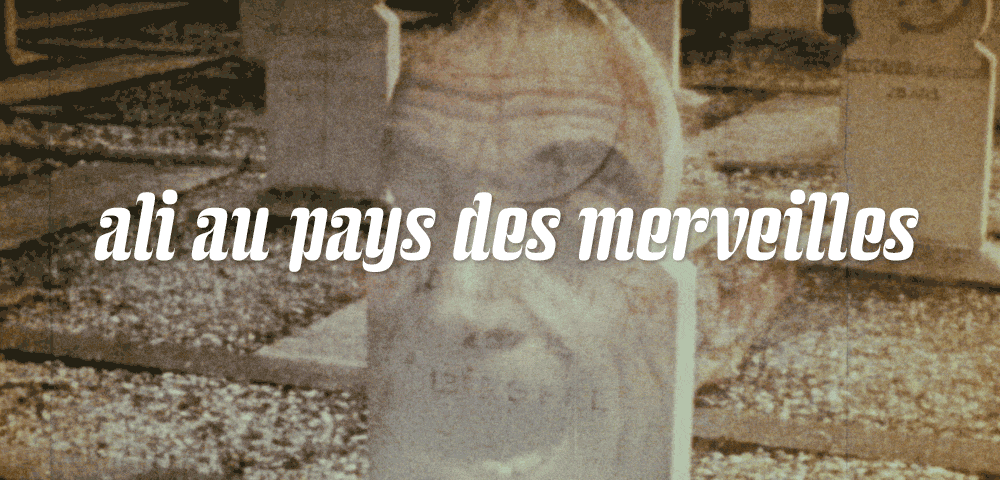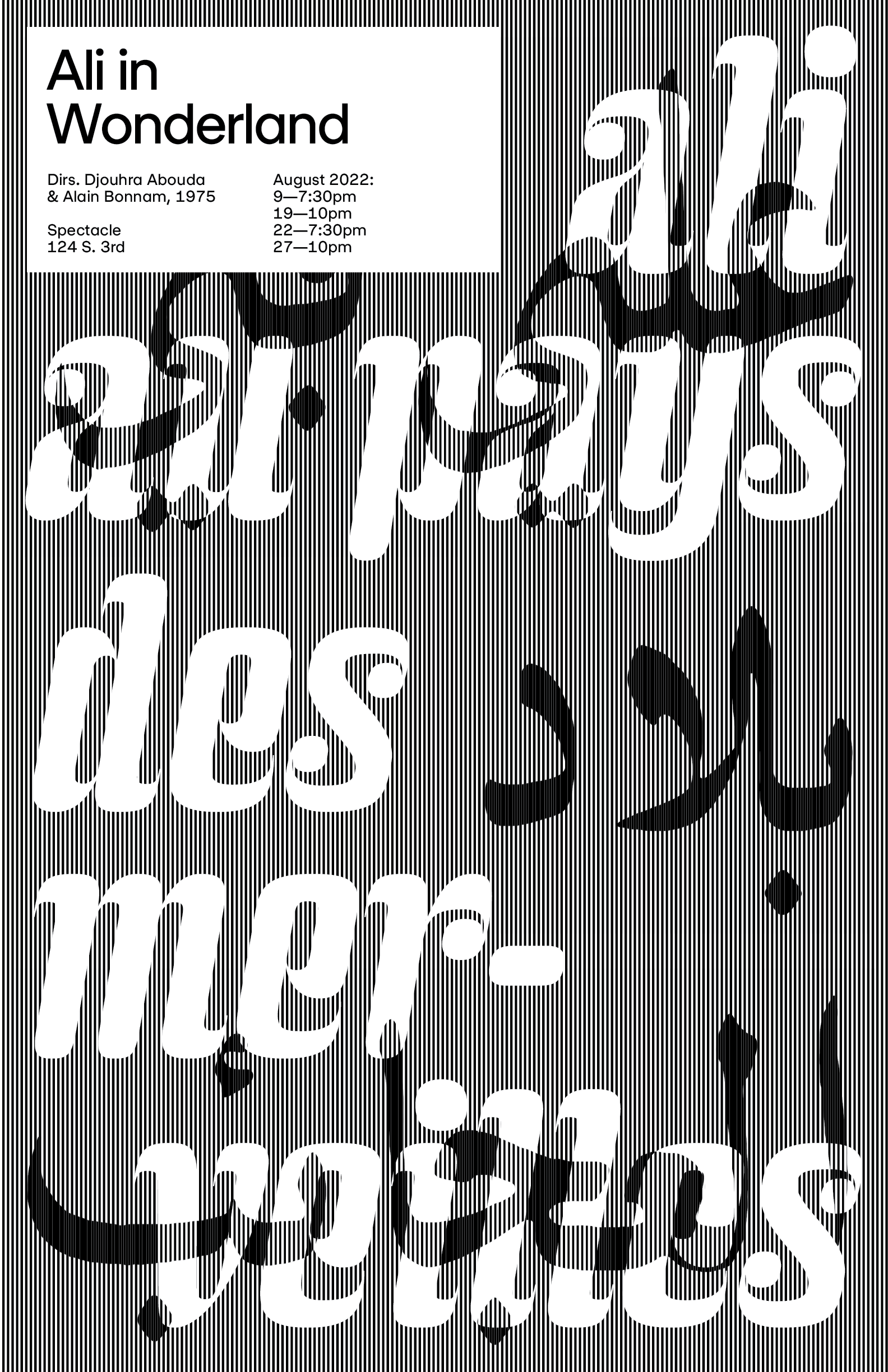
ALI IN WONDERLAND
(علي في بلاد العجائب)
dirs. Djouhra Abouda and Alain Bonnamy, 1976
59 mins. Algeria/France.
In French and Arabic with English subtitles.
TUESDAY, AUGUST 9 – 7:30 PM
FRIDAY, AUGUST 19 – 10 PM
MONDAY, AUGUST 22 – 7:30 PM
SATURDAY, AUGUST 27 – 5 PM
4K RESTORATION – NYC PREMIERE
Miraculously blending styles of militant polemical and experimental essay filmmaking, ALI IN WONDERLAND speaks to the struggle of Maghrebi workers in Paris in the 1970s. Djouhra Abouda and Alain Bonnamy made the film in their twenties, as participants of the Centre Universitaire de Vincennes – a leftist cinema collective formed in the aftermath of the May 1968 uprisings. Fully living up to their stated intention to imbue images “like blows of the fist” upon the film’s viewers, Abouda and Bonnamy paint a visceral and unforgettable portrait of migrant exploitation as it manifests (whether in history or today) in western urban capitals – essential viewing alongside Spectacle favorites like Sidney Sokhona’s NATIONALITE: IMMIGRE and Madubuko Diakite’s THE INVISIBLE PEOPLE.
Formally playful yet ferociously political, ALI IN WONDERLAND is among the most important Francophone films of the (increasingly so-called) postcolonial era, yet has been unavailable to see for decades. Following streaming engagements organized by our friends at Another Gaze and ArteEast in 2021, Spectacle is thrilled to host the New York City premiere of ALI IN WONDERLAND’s new 4K restoration, based on original negatives and a 16mm exhibition copy, supervised by Léa Morin at Image Retrouvée in collaboration with the filmmakers.
“Shaky and stirring, ALI IN WONDERLAND shows an increasingly devastating conflict between the actions of workers and those of the society that employs them without ever seeing or considering them. Luxury shops and boutiques selling haute couture contrast brutally with the living conditions and work undertaken by the Algerians. Images of narrow walkways between tower blocks, slums, substandard apartments, respond figuratively to society’s repressive order of police violence and racism, as well as France’s colonial legacy (the filmmakers include archival images of the Algerian War of Independence, the Sétif massacre, and photographs taken by journalist Élie Kagan on the night of the Paris Massacre of 1961). Abouda and Bonnamy make use of the full audio-visual arsenal of experimental cinema at the time: superimposition and flicker; mosaic images and split screen; fast and slow motion; the integration of still images and animation; jump cuts and shots where the cut is almost imperceptible; and glitching and distortion, either done in-camera or in the edit. Each aesthetic choice is justified by a politics that is precise and easy to decipher – following in the footsteps of the soviet tradition of “ciné-poing” / “cine-fist” (Eisenstein) and even the “ciné-œil” / “cine-eye” (after Esther Choub and Dziga Vertov) and avant-garde documentary of the twenties and thirties (Alberto Cavalcanti, Hans Richter, Jean Vigo).
The montage brings together musical and vocal refrains with visual motifs and the repetition of certain sounds and images takes the viewer into an almost ‘fantastical’ dimension (as noted by the writer Tahar Ben Jelloun in Le Monde in 1978), making the city feel even more oppressive, presented like a great biopolitical and disciplinary laboratory. This ensemble of themes (work, city, lodging, women, children, men, sex work) is contained within a circular construct that echoes the “City Symphonies” genre of the twenties, beginning and ending at night with a shot of the Arc de Triomphe on the Champs-Élysées, having taken the viewer through all the stages in a day in the life of an Algerian worker.” – Federico Rossin, Cahiers du Cinema (via Another Gaze)
screening with
ALGERIE COLOURS
dirs. Djouhra Abouda and Alain Bonnamy, 1972
16 mins. France.
In French with English subtitles.
CINE-CITE
dirs. Djouhra Abouda and Alain Bonnamy, 1974
15 mins. France.
In French with English subtitles.
Via Association TALITHA Films. Special thanks to Peter Limbrick and Lea Morin.

